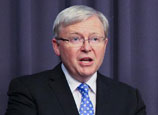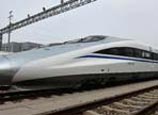
The mutual fund market is facing new competition after several overseas banks got approval from China's securities regulator to distribute the funds on the Chinese mainland, but analysts said Thursday that domestic banks are likely to continue to dominate the market.
Seven overseas banks, including HSBC, Citibank, and DBS Bank, announced late Wednesday that they have been approved by the China Securities Regulatory Commission to sell mutual funds, enabling them to expand their financial services to Chinese mainland consumers.
It is part of the opening-up of China's financial market, Qiu Yanying, an analyst with TX Investment Consulting, told the Global Times Thursday.
The regulatory approval enables overseas banks to enter China's capital market, which has big potential, Qiu said, noting that the banks can also expand their businesses so as to attract more customers.
"In the past, consumers hoping to buy fund products had to purchase them from domestic banks," he said.
The approval enables Citibank to distribute mutual funds invested in local markets, giving its customers access to the A-share market and other capital instruments, the US-based bank said in an e-mailed statement to the Global Times.
The banks said they are in talks with fund companies to launch fund products soon.
Citibank said it will initially partner with Invesco Great Wall Fund Management Co and Manulife Teda Fund Management Co.
HSBC said it will initially launch fund products managed by HSBC Jintrust Fund Management Co, the bank's local joint venture, and partner with other fund firms later this year.
Singapore-based DBS Bank told the Global Times Thursday that it will offer fund distribution soon and launch an online platform for fund information and consultancy services.
The entrance of overseas banks into the market is good news for fund firms and consumers, said Hu Lifeng, director of the fund research center at China Galaxy Securities. "Fund firms will see expanded sales channels, and the market will see more diversified fund products."
Overseas banks will offer better services to win consumers from their domestic rivals, but it will take time to see if they succeed, Hu said.
The market situation is unlikely to change, Qiu said, as 60 to 70 percent of China's fund products are sold through domestic banks at present, and it will be hard for overseas banks with limited networks to gain market share.
By May, China's fund market was worth 3.98 trillion yuan ($647 billion) in total assets, managed by 81 fund management firms including 45 joint ventures, according to data from the Asset Management Association of China.
















 A growing thirst for water safety
A growing thirst for water safety


![]()
